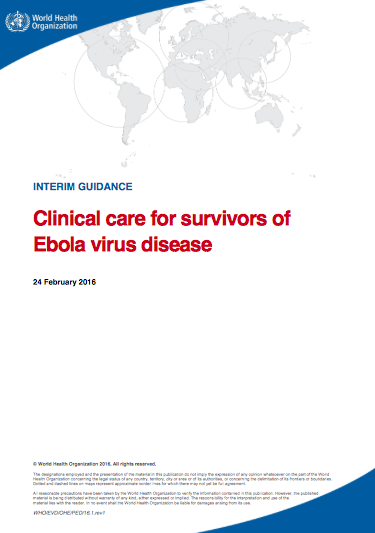 who.int - February 24, 2016
who.int - February 24, 2016
CLICK HERE - WHO - Interim Guidance - Clinical Care for Survivors of Ebola Virus Disease
Overview
Today, there are over 10 000 survivors of Ebola virus disease. A number of medical problems have been reported in survivors, including mental health issues. Ebola virus may persist in some body fluids, including semen. Ebola survivors need comprehensive support for the medical and psychosocial challenges they face and also to minimize the risk of continued Ebola virus transmission.
WHO has developed this document to guide health services on how to provide quality care to survivors of Ebola virus disease. Table of contents include:
Introduction
Planning follow-up of the Ebola survivor
Common sequelae of Ebola virus disease and recommended evaluation and clinical management
Considerations for special populations
Monitoring for persistent Ebola virus infection in survivors: guidelines for testing and counselling
Infection prevention and control considerations in survivors
Recent Comments